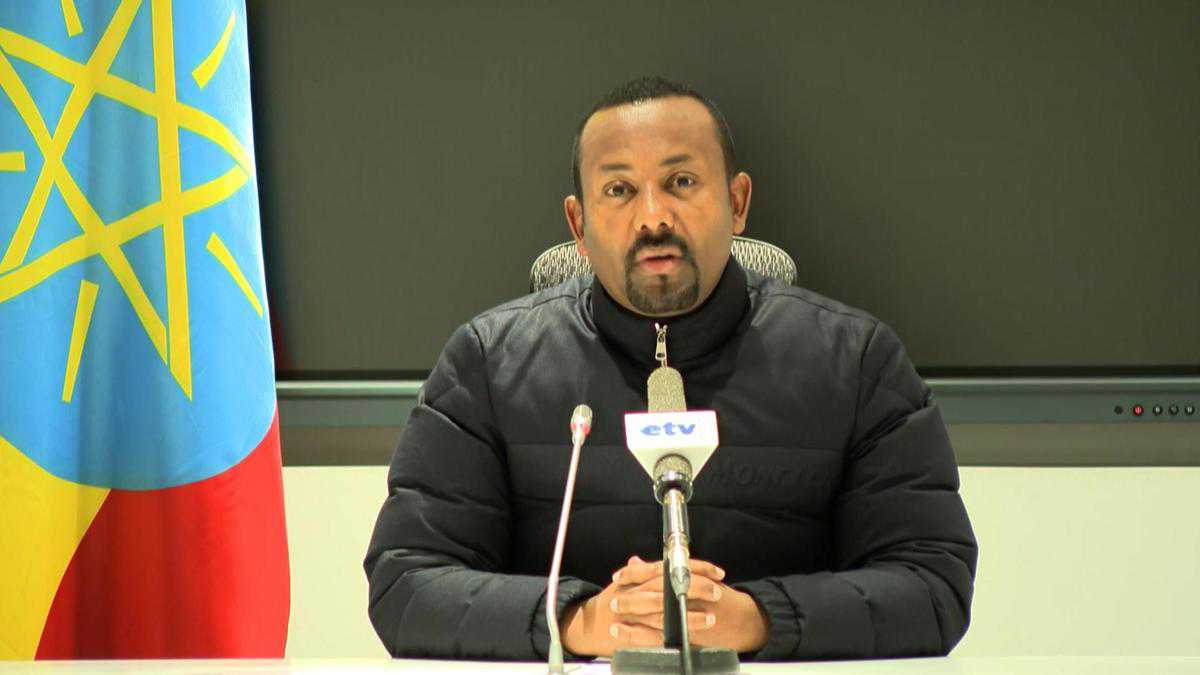Ethiopia's Abiy Ahmed goes from flying commence to a quicksand of troubles
06 February, 2021

For Ethiopia’s Primary Minister Abiy Ahmed, the promise and optimism he projected in abundance when he took the reins in the Horn of Africa nation 3 years ago have to have turn into a fading memory.
Those expectations have since been replaced by a civil war, widening ethnic schisms and an evergrowing crisis with neighbouring Sudan and fellow Nile basin nation Egypt. Since winning the 2019 Nobel Peace Prize after forging peace with arch-enemy Eritrea in his earliest year in office, the primary minister has truly gone from getting his country’s beacon of expect unity and economic prosperity to a innovator who shows little tolerance for dissent.
Drastically, Ethiopia’s woes and Mr Abiy’s own political predicament cast a dark shadow about the Horn of Africa and beyond.
“The high expectations of 2018 have became misplaced,” said William Davison, the top Ethiopia expert at the International Crisis Group, a conflict-prevention organisation headquartered in Brussels. “Everything that’s happening nowadays demonstrates that hopes for a smooth changeover to peaceful multi-receive together democracy were naive.”
Unrest found in Ethiopia, the next most populous African nation with about 110 million persons, could force thousands to flee their homes and take refuge in neighbouring nations. Addis Ababa as well hosts the headquarters of the African Union and the country is among Africa’s major contributors of peacekeepers. A few of its population talk about the same ethnic history with cousins in neighbouring countries like South Sudan and Somalia.
With a burgeoning economy and the probable to export cheap electricity from its practically completed Grand Ethiopian Renaissance Dam on the Nile, Ethiopia has been seen as a future engine for growth in the Horn of Africa and beyond.
Of most its troubles, the battle between federal forces and separatist rebels in the northern Tigray region is the most worrisome. Aside from the financial and individual price of a full-fledged armed service procedure raging there since November, the reported involvement of government-sanctioned militias from the powerful Amhara group threatens to deepen ethnic schisms and extend the conflict beyond Ethiopia's borders. The militias happen to be believed to have previously wrested control of areas of Tigray they say to historically belong to the Amhara.
Additionally, there are indications that forces from neighbouring Eritrea, a longtime enemy of Tigrayans, are fighting on the side of the government, a thing that could just perpetuate the conflict in Tigray, according to experts.
There are credible reports of systematic atrocities and looting of heritage sites in the Tigray conflict committed by almost all parties, experts say.
“Abiy has been undone by the Tigray conflict and he has administered brutal suppression of Tigrayans and brought the Amhara there to get their overlords,” said Gihad Auda, a political technology professor in Cairo’s Helwan university.
The conflict in Tigray and the participation of the Amhara in the fighting have also exacerbated a border crisis between Ethiopia and Sudan, which moved in December to regain control of a few of its territory which have been settled by Amhara farmers for many years. The Sudanese military’s businesses in the region triggered deadly clashes with Ethiopian forces and allied militias, incorporating mortar shelling and cross-border raids. The most recent of these clashes took place on Thursday when one Sudanese soldier was killed and eight others had been wounded, in line with the Sudanese military.
The regions of Tigray seized by Amhara militias border Sudan, raising the likelihood of further clashes. Moreover, Ethiopia insists that you won't negotiate on resolving the border crisis before Sudan pulls its troops from the areas retaken from Amhara farmers, a posture rejected by Sudan.
Tensions between your neighbours have already been raised by the long-simmering dispute over Ethiopia's new dam, located significantly less than 20 kilometers from the Sudanese border. Sudan wants Ethiopia to enter a legally binding deal to talk about information and data on the operation of the dam to avoid flooding and the disruption of its power-producing dams on the Blue Nile. Ethiopia will agree and then non-binding recommendations.
The dispute over the dam also involves downstream Egypt, which is alarmed by the likelihood that the giant structure would considerably reduce its essential share of the Nile waters.
Alternatively, the dam has turned into a rare rallying level for Ethiopians, rendering it impossible for Mr Abiy to offer compromises on its procedure to the Egyptians and Sudanese, in line with the experts.
“Ethiopia’s challenges are converging found in a negative way with its neighbours,” said Michael Hanna of the Century Foundation in New York. “Specifics on the floor are information on the floor and neither Egypt nor Sudan can carry out anything about it. Time is on Ethiopia’s area since 2011 [when engineering of the dam begun] but its internal concerns are complicating initiatives to resolve the dispute over the dam and different issues.”
In all likelihood, according to Mr Davison of the International Crisis Group, Mr Abiy’s get together will preserve power following elections planned for June, but that's unlikely to narrow Ethiopia’s domestic fault lines. “For that, the united states needs to go on a extensive and inclusive countrywide dialogue to come to terms with the past and chart a more harmonious way forward.”
Source: www.thenationalnews.com
TAG(s):
